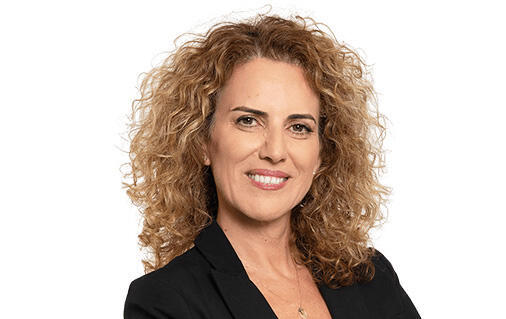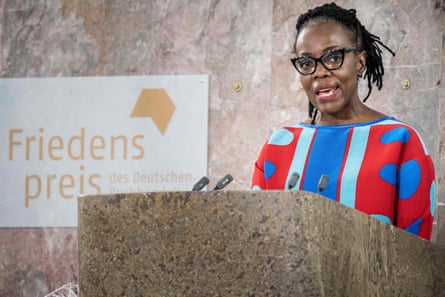“While AI has become integral to all tech companies, there is a growing understanding that the success of AI depends on data quality, uniqueness, and cleanliness,” explained Hila Karah, Managing Partner at Pitango HealthTech. “For health-tech, this presents a challenge and an opportunity: healthcare-focused organizations probably have the largest reservoirs of data; however, for the most part, it is scattered and messy. There’s a lot of work to be done before AI can effectively use the data in medical applications.”Karah joined CTech for its 2025 VC Survey, specifically highlighting health-tech and its potential in the months ahead. “So, while I do not expect AI to replace clinical activities in the health sector at scale in the near term, once the issue of properly organizing large, diverse datasets is fully worked out, the long-term opportunities are immense.”1 View gallery Hila Karah (Photo: Yoram Reshef)You can read the entire interview below.Fund ID
Name of fund/funds: Pitango HealthTech
Total sum of the fund: $150M
Partners: Ittai Harel, Hila Karah, Jonathan Glazer
Notable/select portfolio companies (active): Magenta Medical, Laguna Health, QuantHealth, Protai, Variantyx, Connie Health
Notable exits: Vertos Medical, Ventor Medical, AeroScout, dbMotion2024 is over. How can you summarize it in terms of the Israeli high-tech industry?Although 2024 was a very challenging year, we also saw surprisingly strong results and resiliency in Israeli health-tech. There were many notable exits and significant investments in med-tech, indicating that the year will end with very strong numbers – approximately $1.5 billion in overall healthcare sector investments.Looking ahead to 2025 – What challenges and opportunities await the Israeli high-tech sector in the coming year, and how are you, as investors, preparing for them?I see clear indicators on the international stage, and particularly in the IPO market, of recovery after the stagnation of recent years. I am also happy to see that the Israeli market is showing early signs of improvement with the end of the war in sight.A challenge we are seeing in the health-tech space is a decline in focused investors both in Israel and globally. However, this is simultaneously an opportunity for Pitango – we are fully financed and committed to continuing our activities and accelerating health-tech investments.I am excited to see the pendulum swinging back to med-tech, as well as the continued integration and expected impact of AI on data science and healthcare. We are seeing the promise of AI acceleration in various areas, from medical services all the way to drug development. To bring this promise to fruition, we have at Pitango partners who bring to the table varied and complementary skills in computational AI and data science, as well as a deep understanding of medical go-to-market processes and clinical knowledge.How will new American leadership affect the global high-tech industry or economy? And where does this place Israel and its entrepreneurs?There is no doubt that the new American leadership is set to introduce various changes that will affect global markets. And I believe that, as dedicated investors in the health-tech space, we need to monitor these changes and be ready to adapt quickly and efficiently.What are the three most important things the Israeli government should do today to accelerate the high-tech engine in the coming year?Allocate larger budgets for deeptech, healthcare and biological science companies in the ecosystem. These are generally companies with a J curve; they require a longer investment period before they can go to market. Larger government allocations, with an understanding of their long-term impact, will serve the country immensely.Attract Israeli talent that is currently working in Europe and the United States. There are fantastic scientific and managerial leaders out there, from digital health to med-tech to biopharma. Finding, attracting and supporting them so they continue their crucial work in Israel should be a key undertaking.Prioritize support for national organizations that are focused on promoting the health-tech ecosystem.Are there new sectors you see as relevant? Are there any fields you anticipate will weaken significantly in the coming year?The convergence of AI and biological sciences, medical devices, and healthcare services is a huge opportunity in Israel. In light of this, the medical service infrastructure here – and abroad, as well – needs to be reassessed to allow a holistic, ground-up AI-driven transformation.At the same time, we expect AI to potentially force many enterprise software companies to rethink their strategies and offerings. Specifically for biotech, Israel produces outstanding scientific discoveries that can create groundbreaking impact, but unless the government supports biotech and allocates funds for at least a decade, it will be very difficult to propel such innovations forward.Is Israel missing out on the AI revolution in the global arms race? If not, what should the local industry focus on to join the global race?While AI has become integral to all tech companies, there is a growing understanding that the success of AI depends on data quality, uniqueness, and cleanliness. For health-tech, this presents a challenge and an opportunity: healthcare-focused organizations probably have the largest reservoirs of data; however, for the most part, it is scattered and messy. There’s a lot of work to be done before AI can effectively use the data in medical applicationsSo, while I do not expect AI to replace clinical activities in the health sector at scale in the near term, once the issue of properly organizing large, diverse datasets is fully worked out, the long-term opportunities are immense.Could the global IPO drought end in the coming year?While there were fewer IPOs among medical and digital health companies recently, we did see important IPOs in biotech and powerful consolidations. We expect to see more of these in the coming year. I am quite optimistic.From an investor’s perspective: will the coming year be better for early-stage startups or more mature companies?We saw that 2024 was better for more mature companies, those in their commercial and later stages. But I already see indicators of a shift to early-stage startups. Whether it will peak in 2025 or 2026 is hard to say, but the shift has started. Did you raise fund money in 2024 for an existing fund or a new one? What are your expectations regarding this matter for 2025?Yes, we did raise a Pitango HealthTech fund and we are actively investing in exceptional companies at the moment.How many investments did you make in 2024, and how does it compare to previous years?We made three new investments in Guardoc, Nevia, and one in stealth mode. We also made several follow-on investments in Homethrive, Laguna Health, Variantyx, QuantHealth, Connie Health, CLEW Medical, Magenta Medical, Medisafe, and more.Provide an example of an intriguing investment you made in 2024. What sets this company apart, or what is distinctive about its sector?Pitango led the seed round for Guardoc, a savvy clinical compliance company in the health-tech sector. They are bringing the advantages of advanced digital health, data science, analytics, and reporting into the world of documentation, compliance, and administration for skilled nursing facilities (SNFs), elder care facilities, and rehabilitation centers.What makes the company stand out to us is its leadership and market potential. Guardoc founder and CEO Hadassah Backman is an accomplished nurse with years of experience in managing and consulting for such organizations. This gives the company a deep understanding of what is needed, a connection with the customer base, and an unparalleled network. And, of course, we got results. With a rapid go-live and go-to-market, Guardoc saw numerous customer installations and adoption of their high-value offering in the US in 2024.Two notable companies that you think will thrive in 2025. Company Name: Laguna Health
Sector + description of the product/service: HealthTech/Digital Health – GenAI co-pilot for healthcare patient-focused call centers
Total investment: Approximately $25M
Founding Year: 2020
Reasoning why this is their year: Laguna Health provides a product that has hit the bullseye in the healthcare contact center market. We know this because no less than eight major US customers have signed deals with Laguna Health in H2 2024 alone. The company’s customers have expressed great satisfaction and are enthusiastic about the solution’s utility and its proven ROI. From our perspective, this is clearly building momentum for a massive scale-up in 2025.Company Name: QuantHealth
Sector + description of the product/service: HealthTech / Convergence of AI and Drug Development Clinical Trial Management
Total investment: $20M
Founding Year: 2020
Reasoning why this is their year: QuantHealth is one of the most robust and promising companies in its space: they are addressing the issue of an almost 90% failure rate in clinical trials that currently cost the pharma industry $100 billion. Their technology leverages AI and data science to greatly enhance and optimize these trials, saving the industry billions of dollars and, most importantly, helping to bring effective drugs to market faster, with wider reach, and a lower cost.After investing in building out its unique data sources and modeling approaches over several years, the company has proven its value to the pharma and biopharma industries in all stages of drug development and clinical trials. We are seeing great commercial traction, with the adoption and expansion of the QuantHealth platform by numerous big pharma and biotech customers in 2024.










